Are you looking to grant someone the authority to represent your business in official matters? Creating a corporate representation authorization letter is an essential step to ensure that your chosen representative can act on your behalf legally and efficiently. This document not only provides clear communication but also protects your interests in various transactions. Curious to learn how to draft one effectively? Read on for a detailed guide and template!
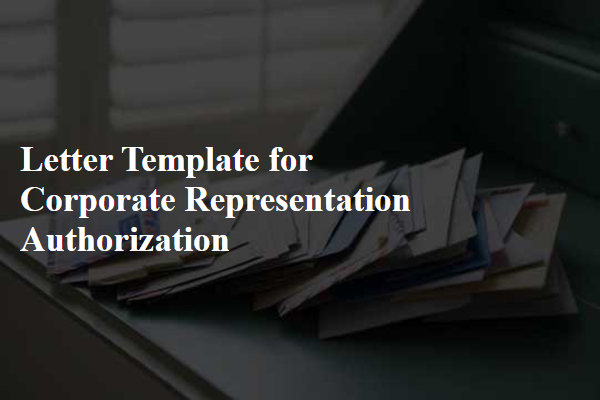
Company Information
Authorization for corporate representation is crucial for managing business activities effectively. This document typically includes essential company information such as the official business name, registration number, and headquarters address. It may also specify the authorized representative's name, position, and signature for validation. This formal authorization allows designated individuals to act on behalf of the company in legal matters, negotiations, and other corporate interactions, ensuring that decisions made are legally binding and recognized by external parties. Accurate documentation in compliance with regulations is vital for maintaining credibility and ensuring smooth operations in business transactions.
Authorized Representative Details
Corporate representation authorization is essential for ensuring designated individuals can act on behalf of a company. This process typically involves specifying authorized representatives--individuals entrusted with the power to make decisions, sign documents, and engage in transactions. Key details include full name, job title, contact information, and specific powers granted. Authorized representatives may need to represent the corporation in legal matters, negotiations, and official meetings. Precise identification of representatives supports compliance with corporate governance and legal frameworks, enhancing the company's operational effectiveness. A clear and well-defined authorization letter ensures smooth interactions with stakeholders.
Scope of Authorization
Corporate representation authorization provides a formal framework for individuals to act on behalf of a company in specific matters. This authorization typically outlines the scope of powers granted, such as negotiating contracts, representing the corporation in legal proceedings, or engaging with stakeholders. Authorized individuals must adhere to the defined limits of their authority, ensuring actions align with corporate policies and legal requirements. The authorization document often includes details about the duration of authority, specific tasks permitted, and any necessary reporting obligations, ensuring clarity in responsibilities and expectations for both the representative and the corporation.
Duration of Authorization
Corporate representation authorization grants specific individuals the power to act on behalf of the company. This authorization, often detailed in legal documents, typically specifies the duration of the authorization period. For instance, the duration may be limited to a particular project timeline, such as six months for a construction initiative or one year for a marketing campaign. These durations ensure that the authorized representatives maintain accountability and align their actions with corporate objectives, thus allowing stakeholders to appropriately track their engagement. Clear records of such authorizations protect corporate interests and foster transparent communication among partners and clients. The effective dates of authorization, both start and end, should also be noted, commonly formatted as month, day, and year, to avoid disputes regarding validity.
Signatures and Contact Information
Corporate representation authorization requires precise documentation to ensure legitimacy. A formal letter outlines the signature of authorized representatives, typically including the Chief Executive Officer (CEO) and Chief Financial Officer (CFO), ensuring clarity on responsibilities. Contact information must include the company's registered address, phone number, and email address for efficient communication. Such documentation is crucial during negotiations, regulatory inspections, or partnerships, where verification of authority is paramount, especially in jurisdictions like the United States or the European Union, where compliance laws are strictly enforced.

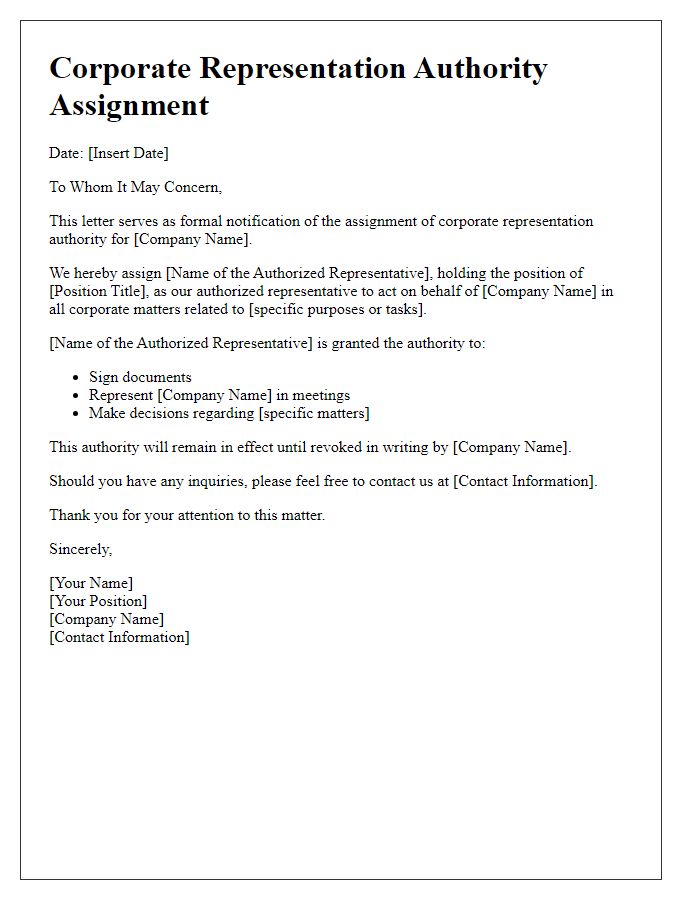
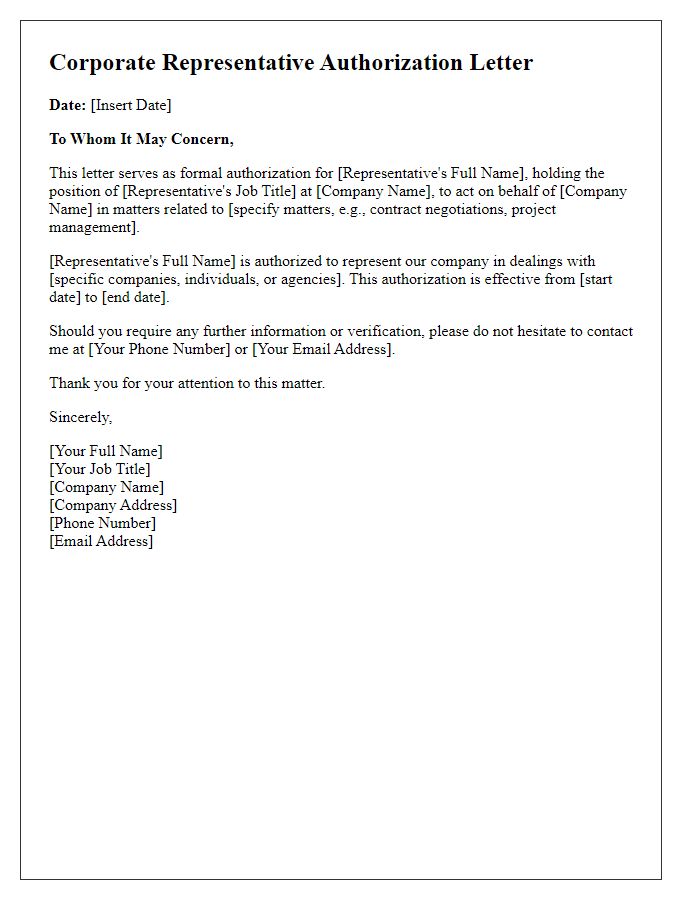
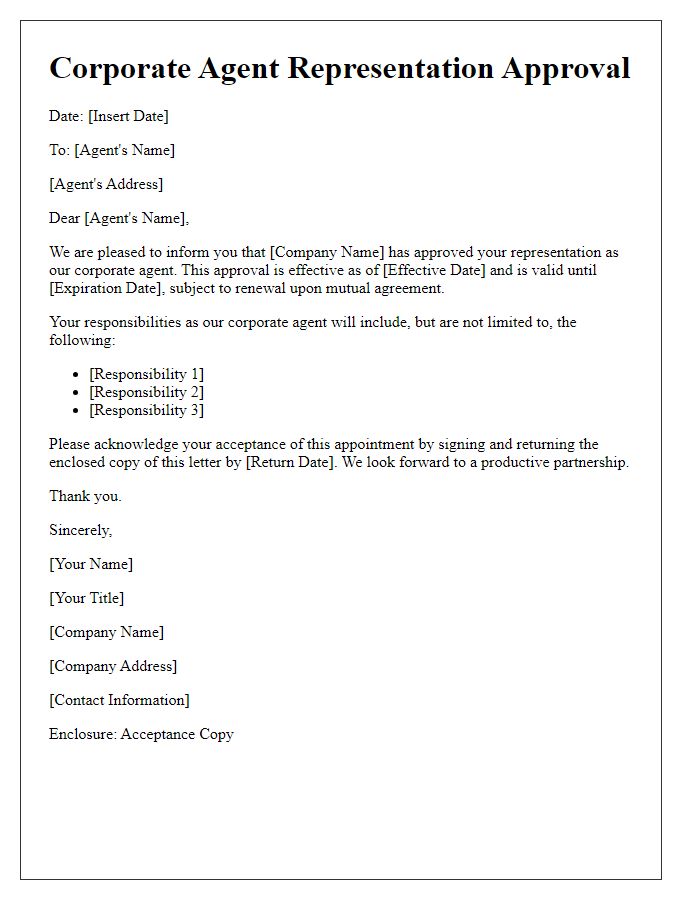
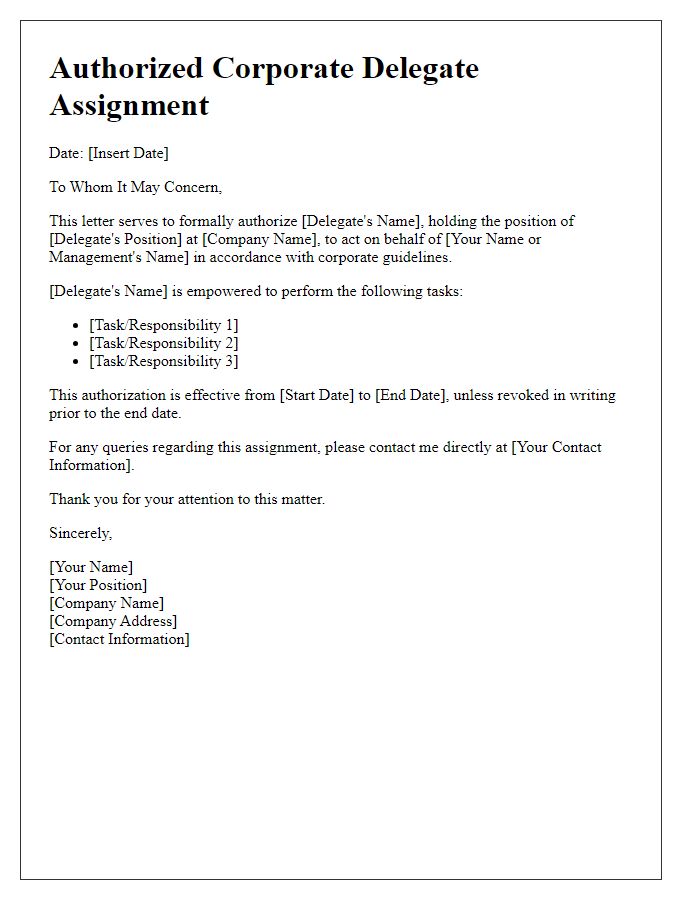
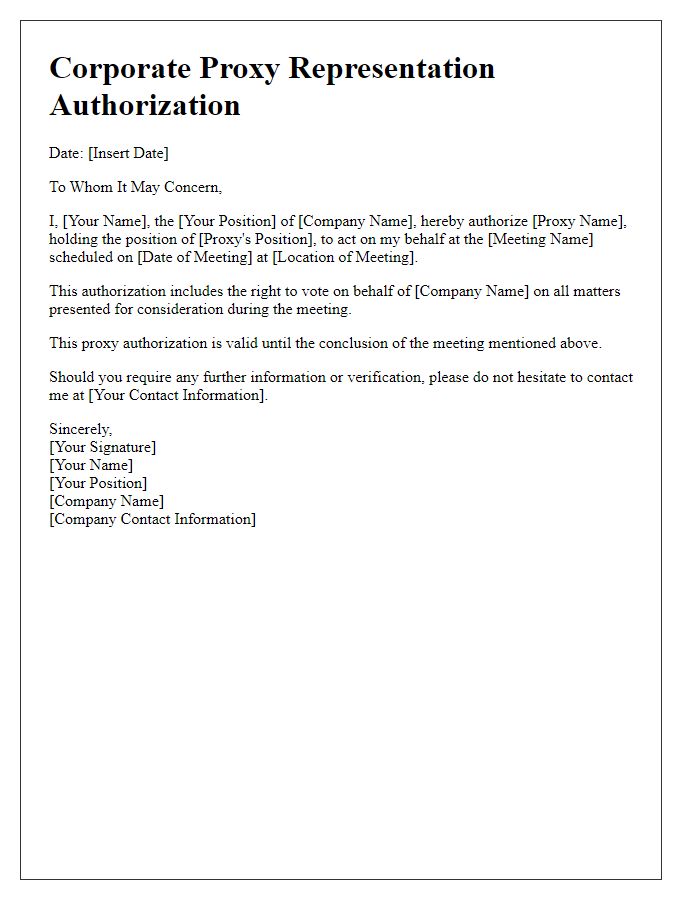
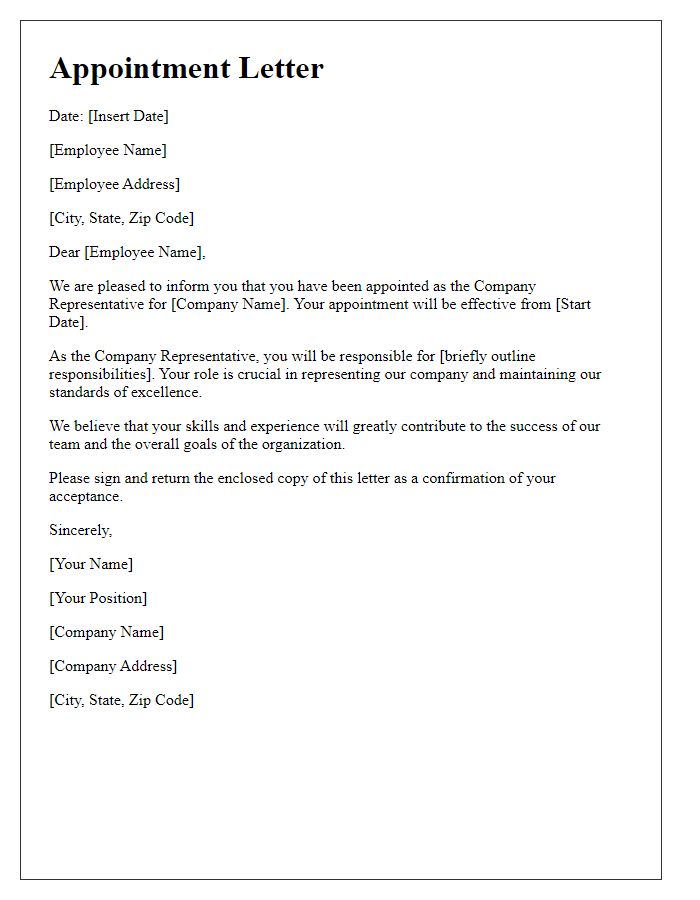
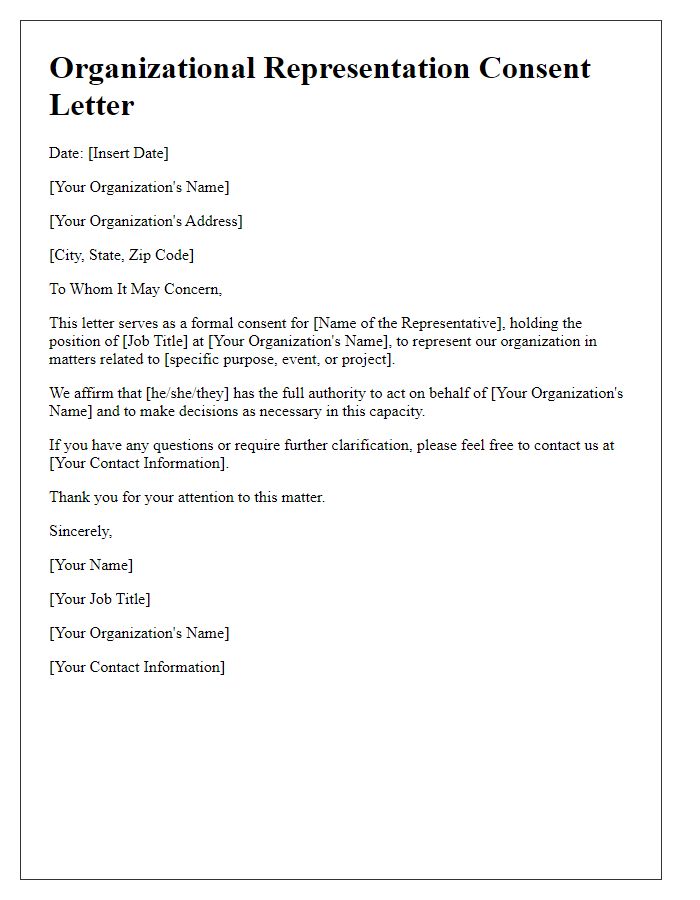
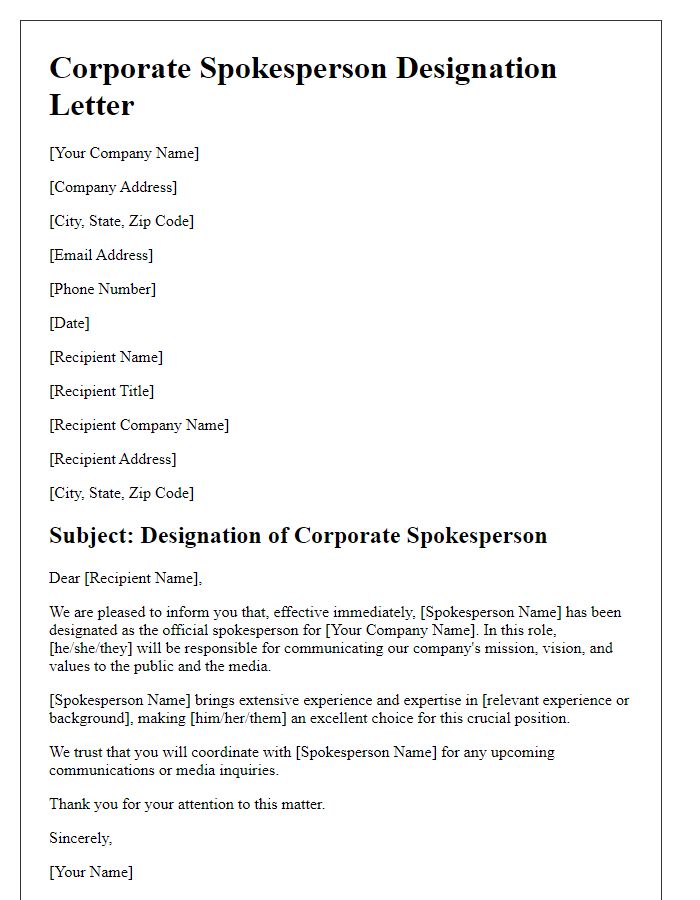
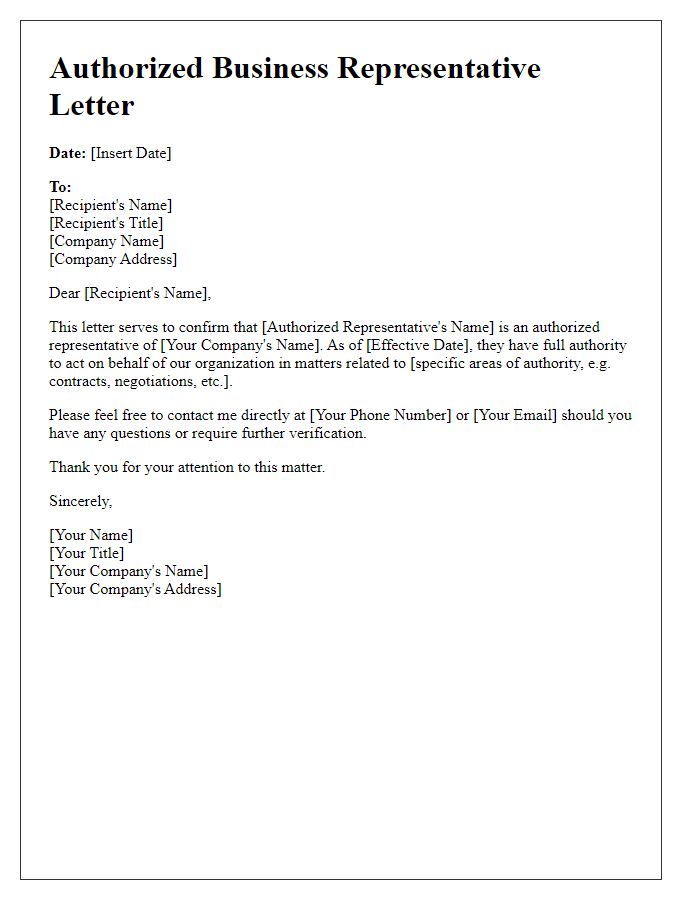
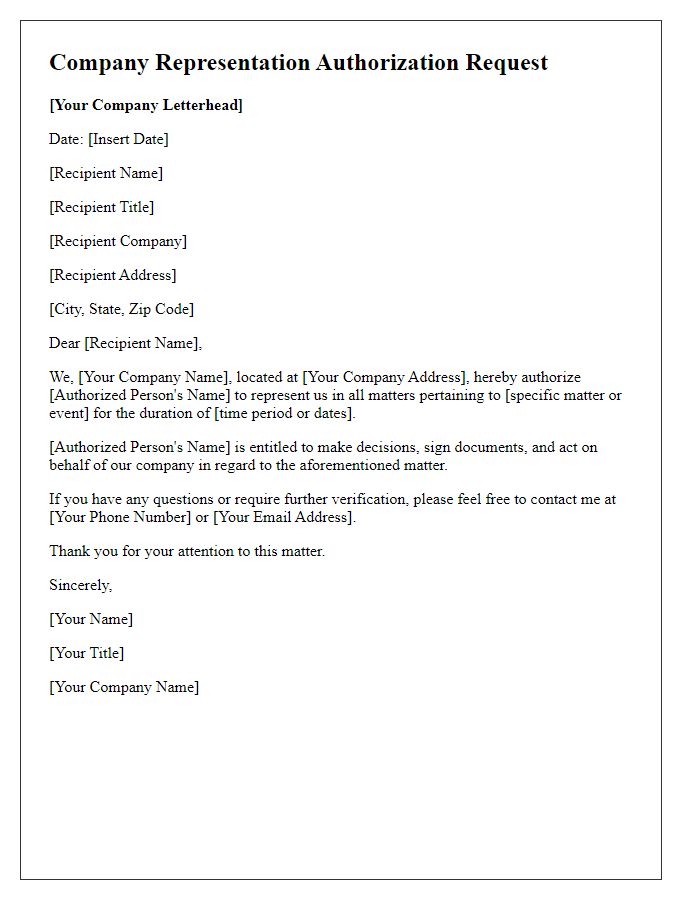


Comments